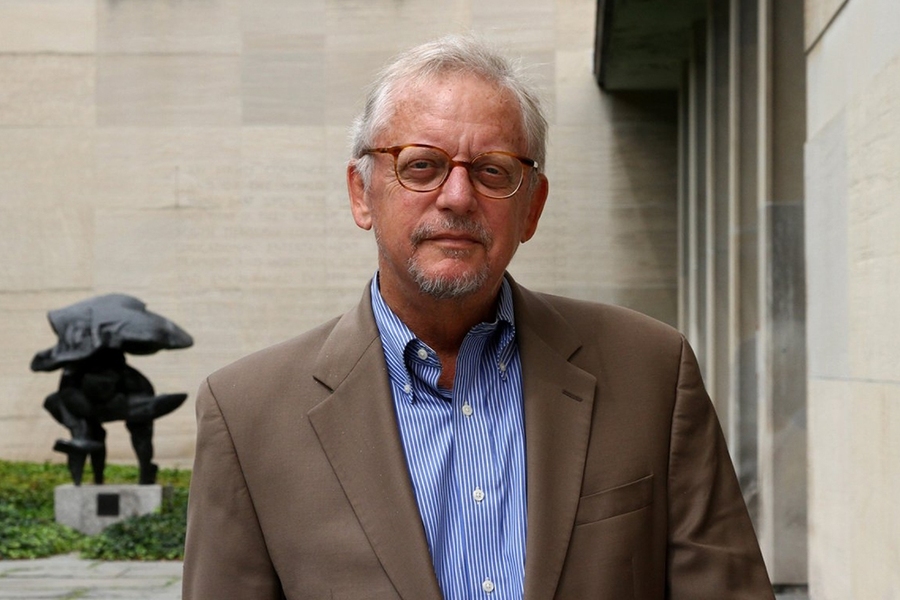U.S. Secretary of State Mike Pompeo has launched a Commission on Unalienable Rights at the State Department. Human rights, he says, are no longer guided by the principles established by America’s founders and are unmooring America from the principles of liberal democracy. A moral foreign policy should be grounded in the definition of unalienable rights, writes Pompeo in an opinion piece in The Wall Street Journal. A serious debate on human rights is urgent, Pompeo argues, and compares the commission to the panel Eleanor Roosevelt convened in 1947, which resulted in the “Universal Declaration on Human Rights.”
John Tirman, executive director and principal research scientist at MIT's Center for International Studies, provides context behind the newly created commission and describes its potential impact on the human rights movement. Tirman is a co-founding director of the new Human Rights and Technology Program at MIT, leads the MIT Persian Gulf Initiative, and is a member of the Inter-University Committee on International Migration. He is author, most recently, of "Dream Chasers: Immigration and the American Backlash" and "The Deaths of Others: The Fate of Civilians in America’s Wars."
Q: What is the political impetus behind Secretary Pompeo’s commission?
A: Most knowledgeable observers see Pompeo’s commission as an attempt to curtail the gradual expansion of human rights that include marginalized groups — LGBT rights, most particularly, but also of indigenous peoples, immigrants, children, workers, and so on. They also see this as a pushback on reproductive rights for women, and abortion rights specifically. Of course, these rights were not envisioned by the founders. By focusing on “unalienable” rights, he signals that this effort is embedded in so-called natural law, which to many people implies religious origin and legitimacy — rights are only endowed by God. The Declaration of Independence is replete with references to natural rights conveyed by the Creator. If rights are a product of religious faith and practice, then the gatekeepers of religion will likely be the arbiters of rights.
The international dimension serves certain specific ends: an opportunity to chastise states that the Trump administration doesn’t like — such as Iran, Cuba, Venezuela — and provide a boost for some friends in troublesome areas — Israel’s 50-year occupation of Palestinian lands, for example. It will brace the U.S. aid policy of denying abortions. A very narrow definition of human rights would also enable the U.S. government to ignore, more than ever, the human-rights abuses of states with which we are friendly. If one doesn’t grant indigenous peoples’ rights to their original lands, to cite one pressing case, then what Brazil’s president, Jair Bolsonaro, is doing in the Amazon is not of our concern. Similar indifference can be applied to the Rohingya, Kurds, Shia in Saudi Arabia, and dozens of other cases.
Q: How have human rights evolved throughout history?
A: Human rights has a long history, even if they weren’t always recognized as such. In Europe, and Britain particularly, rights evolved in part to curtail the power of the monarch. Gradually, notions of tolerance and protected dissent became keystones. Documents like the Magna Carta (1215) and the English Bill of Rights (1689) established norms that not only formed Britain’s unwritten constitution, but shaped ours as well. Conservatives have always insisted that such precedents are the root and branch of legitimate political principles and practice. The appeal to “natural law” should be understood in that context.
This holds some irony in the Trump era. Those English documents insisted on parliamentary rights to keep the sovereign accountable, for example. We see today the White House violating Congress’s subpoena and oversight power, which is hardly consonant with conservative values. That is having deleterious impact on, for example, the rights of asylum seekers at the U.S.-Mexico border. Those early precedents also addressed economic rights. In the last 75 years, beginning with Franklin Roosevelt, economic rights — in the idiom of liberty, “freedom from want” — have been high on the agenda of liberals, and resisted by the right wing. Economic rights as human rights have long been embedded in the most important English precedents, however — the right to inheritance, for example, or to fair taxation. And the Universal Declaration of Human Rights, promulgated at the United Nations in 1948 and cited approvingly by Pompeo, is filled with economic rights, including several demands for equality.
In the category of “Be careful what you wish for,” this is rich irony indeed.
Q: What are your chief concerns?
A: At a time when human rights are under siege from authoritarian rulers around the world, pulling back and constraining the definition and applicability of human rights is especially vexing. There is, moreover, a robust discourse about rights in academia and civil society. Hundreds, if not thousands, of nonprofit human-rights organizations are at work, and it is through this work that rights are challenged and redefined. The notion that we need a panel of carefully selected conservative thinkers appointed by the government to reassess rights is almost absurd.
The assertion that human rights only embody what is articulated in America’s founding documents — particularly the Bill of Rights — is worrisome. Our notions of political, economic, social, and cultural rights and obligations change over time, and this should be readily acknowledged by all parties. The founders did not envision or provision a standing army, yet the prospect of America without a military would be considered quite eccentric. Today, we clearly embrace the idea of women’s equality, even if the means to achieve that are contested. Privacy is nowhere mentioned in the Constitution, yet Americans consider their personal sphere to be inviolable. The human cost of war has prompted the international community — often led by the United States — to recognize rights of non-combatants during wartime, or rights of refugees, or rights of women to protection. Little of this was considered before the 20th century.
There are numerous examples of these rights in the international arena, and nearly always they evolved to give voice and standing to otherwise-powerless and, often, victimized peoples. That is the great moral thrust of the human-rights revolution and one of the most encouraging achievements in the history of international relations.









